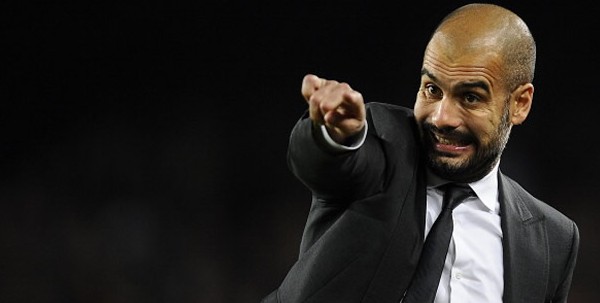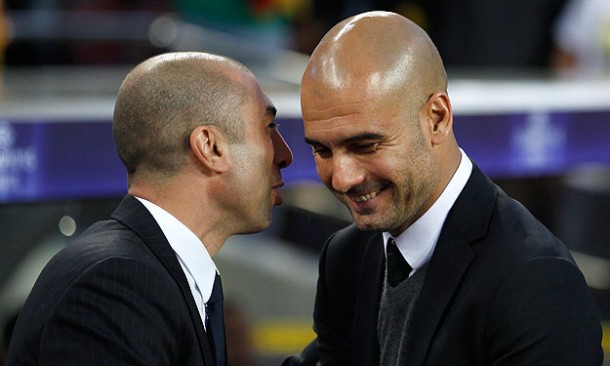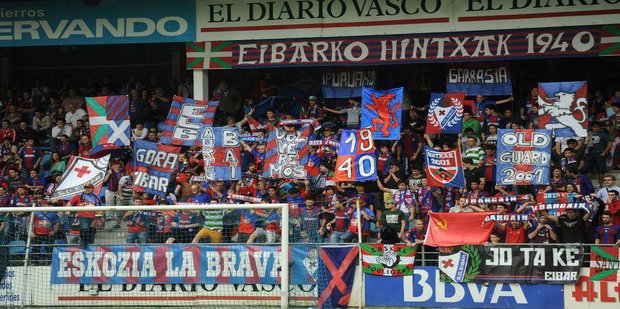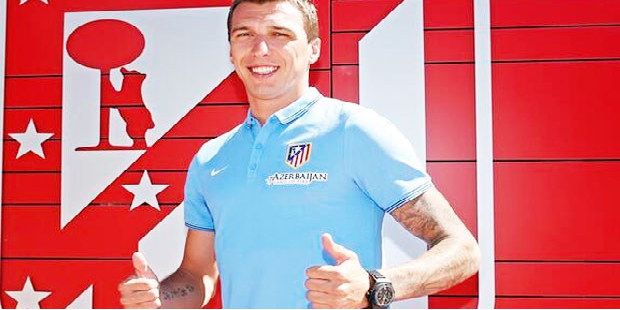- S.D. Eibar ready for maiden La Liga outing
- SD Eibar stengthen ahead of debut La Liga season
- Can ‘Super Mario’ live up to expectations in Madrid?
- MAN IN THE GROUND – Brentford 0 – 4 Osasuna
- Historic Basque derby welcomes S.D. Eibar to La Liga
- Munich to Madrid, via Brazil – Tony Kroos
- Rakitic in Spanish Switch
- Can Spain find redemption in Rio?
- Viva Espana! A season of redemption for Spanish football
- From the old to the new: who can fill the void in years to come for La Roja?
Why Guardiola to Chelsea is a dangerous proposition for both parties
- By Lee Roden
- Updated: 22 November, 2012

Twenty four hours is an eternity in the world of Chelsea Football Club. In the space of the sun rising and setting on 21 November 2012, the club has went from one Champions League winning coach to another, yet neither is the man their owner truly wants. By appointing Rafa Benitez as an interim coach, Chelsea owner Roman Abramovich has made it clear without stating it directly that, if all things go to plan, the former Valencia and Liverpool boss is only warming the Stamford Bridge throne for Pep Guardiola. Perhaps Mr Abramovich should familiarise himself with the work of Rabbie Burns for an understanding of how the best laid plans of mice and men tend to unfold.
The problem is, in clearing the way for Guardiola to arrive, Roman Abramovich may just have sent the worst possible signal to the Catalan. Similar warnings were there all along, notably in Abramovich’s ruthless cutting loose of Carlo Ancelotti with little rhyme or reason, but if Chelsea’s owner can’t even persist with the man who brought him the one prize he has always coveted since buying the club, then no one is safe. Not even Guardiola.
If the former Barça man didn’t know that before, he certainly does now, and it’s hard to see how there can be more persuasive than dissuasive factors for Guardiola when weighing up a move to the London side in the summer. A wealthy man, he won’t struggle to find his next meal, and in any case is likely to be paid well wherever he goes. If Guardiola proves true to form, certain key principles will be decisive in choosing his next destination, with the salary offered not top of the list. In other words, there has to be something more on the table than cold hard cash to convince him that the most important move of his career should be to Stamford Bridge. It’s hard to find such motivating factors however, and far easier to find those which could force him to think twice.
But first, to dispel a myth. The notion that Guardiola was given the perfect team in his last job is certainly that, a work of fiction by those who either have short memories or failed to see the stark differences between the team he inherited and the team he produced. There’s no doubt in my mind that his decisions both on a small and large scale played a huge part in Barcelona’s success in recent years. Yes, he may have had Lionel Messi, Xavi Hernandez and Andres Iniesta when he arrived, but it was he who converted Messi into perhaps the greatest goalscorer ever seen and gave him the confidence necessary, he who assured Xavi and Iniesta that they would be the heart of his side and made sure it was so, and he who taught Barcelona to work just as hard off the ball as they already had on it. This was no case of simply turning up and allowing the players to work their magic.
What is clear however, is that at Barcelona, decades worth of hard work enabled Guardiola to transmit his footballing ideas from his mind onto the playing field. The addition of high intensity pressing was only made feasible in the long term by the kind of discipline instilled in the type of players Barcelona had in their ranks. In the case of their youth products, it came from the environment in which they were taught. In the case of the signings, such open-mindedness is a key part of the selection process to come to the Camp Nou in the first place.
Undoubtedly there have been errors in that process along the way, but whether it’s Alexander Hleb or Zlatan Ibrahimovic, the mistakes were soon weeded out. Disparaging intentions aside, Ibrahimovic was on the right track when he compared Barcelona’s players to school children. Players must be ready to absorb and apply ideas in place of their own egos for Guardiola’s manner of managing to work, and at Chelsea, a club where certain players seemingly have more authority than their managers, that may not be the case.
In a culture where your boss is habitually punted after the most minor of slip-ups, players could be forgiven for having little respect for the authority of a coach, and for thinking that his latest tactical revolution is meaningless in the long term. After all, he’s likely to be replaced in six months anyway. Pep Guardiola’s honours list isn’t likely to make him any different in that regard. Carlo Ancelotti certainly didn’t lack awards. He was shown the door like the rest. Perhaps the attitude required to absorb Guardiola’s methods can be taught, but only with time, and time is the one commodity Roman Abramovich can’t guarantee. That’s no value judgement of the Chelsea owner, it’s simply a conclusion based on his past actions. Considering the great foresight he has shown in his career, Guardiola will surely also have pondered over that point.
What too of the potential risks for Roman Abramovich, should he convince Guardiola to put his doubts aside? What if, despite his relentless efforts to bring the coach to Chelsea, the project fails? What if, true to form, the owner gets tired of waiting for style and results to align, and Guardiola is given the same treatment as those who preceded him? In that case, Abramovich would be forced to admit that his dream had failed, that transposing Barcelona’s methods onto a completely different club via their most successful manager proved not to be the one size fits all solution he had previously hoped for.
That may not only sting Abramovich, but it could sting Chelsea’s supporters, too. If his biggest ambition turns out to be a failure, there may be little else left to chase for the Chelsea owner. Will he then tire of football altogether? That’s the thing, the problem with the Russian’s obsession with Guardiola and Barcelona is that it is exactly that, an obsession. Obsessions aren’t well thought out, nor do they tend to end well.
Follow @icentrocampista







You must be logged in to post a comment Login